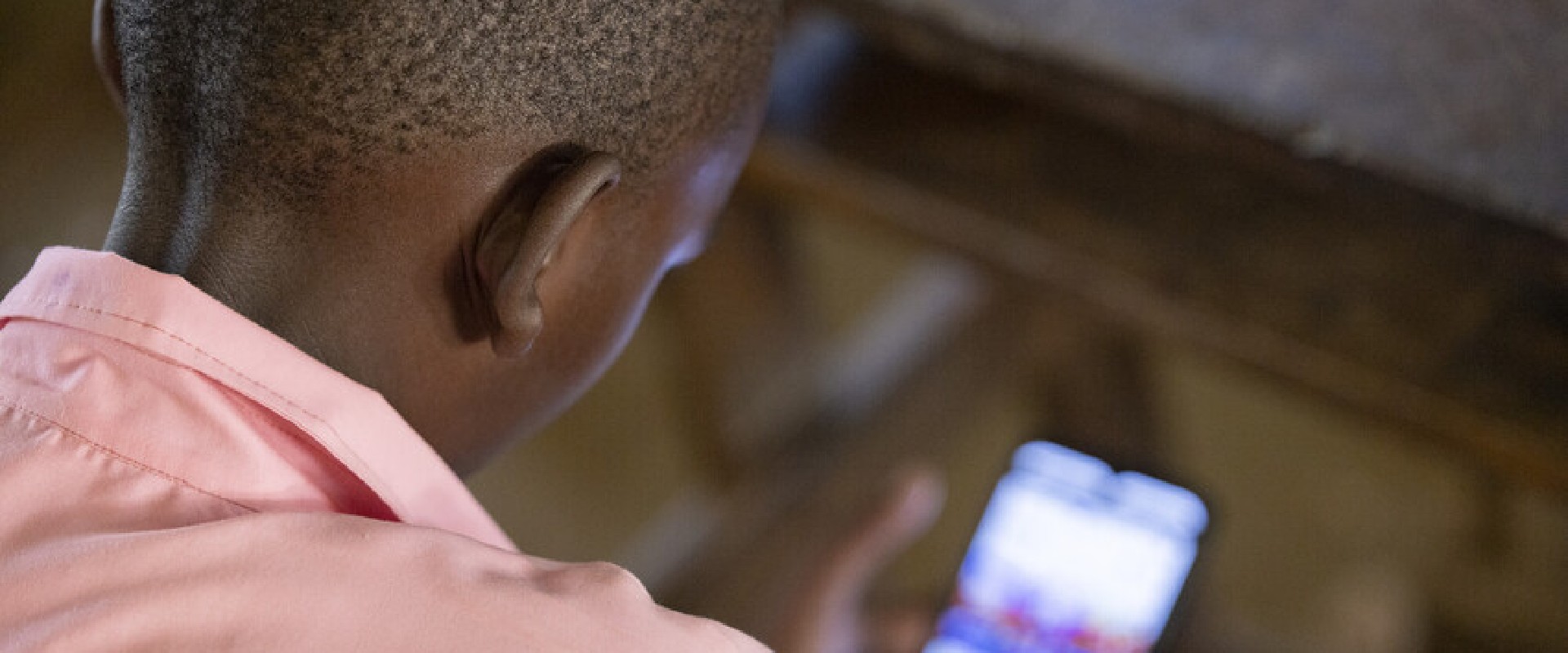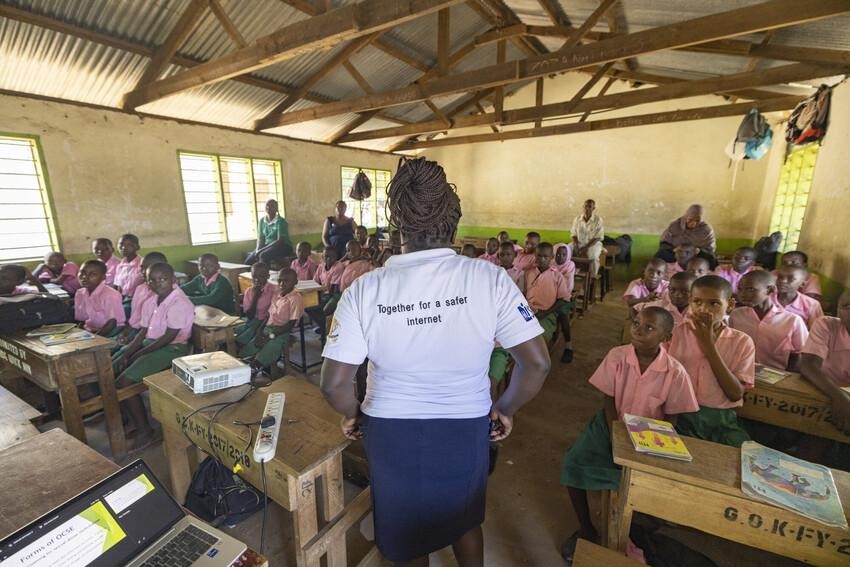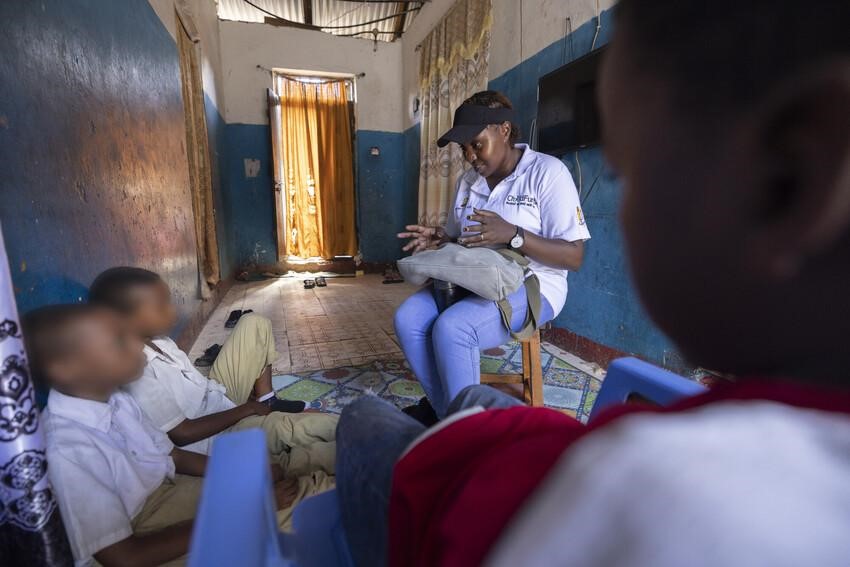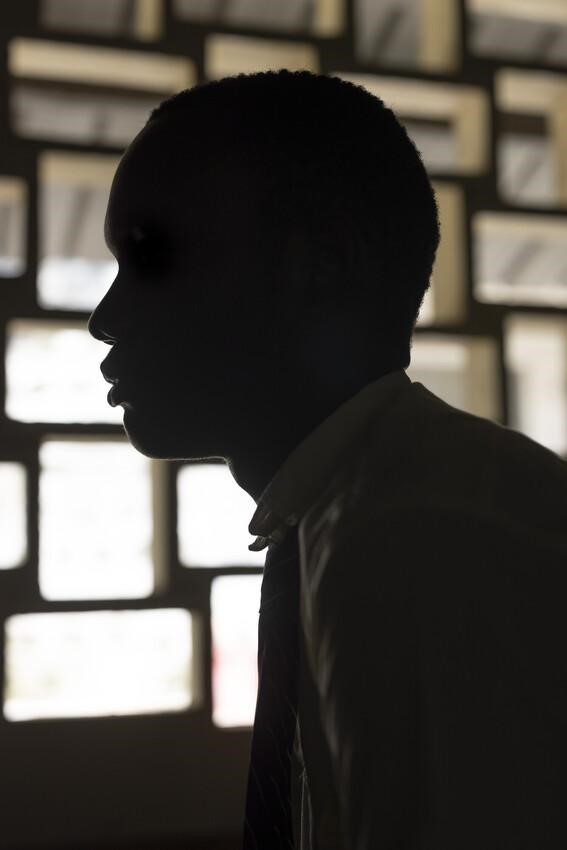Fighting Online Sexual Abuse in Kenya
August 14, 2024

A Kid using a Phone
Kenya is becoming a hotspot for online child sexual abuse. In 2018, the Anti-Human Trafficking and Child Protection Unit (AHTCPU) of the Directorate of Criminal Investigations handled 3,160 cases of different forms of online child sexual exploitation and abuse. According to the DH report in Kenya, a year later, the cases went up to 4,133 as the unit also received an average of 13,572 CyberTips per year via the US National Center for Missing and Exploited Children (NCMEC) between 2017 and 2019.
The Safe Community Linkages for Internet Child Safety (SAFE CLICs) project funded by Safe Online responds to the urgent and growing need to strengthen child protection networks and systems in Kenya to identify and respond to online child sexual exploitation and abuse. Children in low-income communities across the country are solicited to film, produce, and share content with perpetrators who profit from disseminating Child Sexual Abuse Material(CSAM.) In Mombasa for example, a syndicate of web traffickers based in 200 locations in the area was identified to target economically vulnerable families and pay them off to have their children stream CSAM for local and international audiences and in turn get monetary compensation to sustain their livelihoods.
Equally to note, through our engagements with the community- we identified that many if not most Kenyans shy off from reporting cases they have directly witnessed as they do not want to bear the burden of being witnesses in cases that may drag for long in courts. We therefore decided to respond to this, as one child abused is far too many. Through multisectoral coordination that reaches out to the community as well as the child, we are creating preventive community education on digital safety and sexual violence.
Fighting Online Sexual Abuse in Kenya
In 2022, we received a $1 million grant from the Safe Online Fund to lead the SAFE CLICs project that responds to online child sexual exploitation and abuse in Nairobi, Kiambu, Mombasa, and Kilifi. As part of the project, children participate in peer-to-peer dialogue sessions and response classes and have access to trained psychologists to get extra support.

Youth at a boys’ secondary school in Kenya participate in group awareness activities on online sexual abuse as part of the Safe CLICS project.
Khalidi, 6, is just one of the children who is receiving counseling through the project. He and his brothers, ages 7 and 9, were coerced into performing a sex act while being filmed by a neighbor. When Khalidi’s parents found out, they reported the incident to local police, who then reached out to a child protection volunteer – trained under the Safe CLICS project – in Khalidi’s community.
Psychologist Teresiah Kamau from ChildFund’s partner Childline Kenya now counsels Khalidi and his brothers. The case is still ongoing in court while the boys receive their counseling through the project.

Beverly Komen, project officer of our local partner organization Lifeskills Promoters, talks to primary school students at an awareness and response class on online sexual abuse in Kilifi County, Kenya, as part of the ChildFund Safe CLICS project.

Teresiah Kamau speaks to Khalifi and his brothers during a Safe CLICS counseling session.
As important as it is for children to feel comfortable enough to reach out for help, it is equally important for parents and the entire community to support a child’s decision to report. In part because of the supportive environment created by Safe CLICS, Khalidi’s family was able to go through the proper methods to report the abuse and begin the process toward healing and justice.
Michael, 16, is also receiving counseling through Safe CLICS. He was recently groomed online and coerced into meeting up with an adult in person in Mombasa, Kenya. During the meetup, he was raped.

Michael, 16
Fortunately, teachers at Michael’s school were trained in how to respond under the Safe CLICS project. After Michael informed his teacher of the assault, the case was referred to local police and Michael began to receive counseling through the project.
“I was filled with anger. I was depressed,” says Michael. “It really disturbed my mind. It disturbed my studies. That is when I decided to tell my teacher.”
Protecting children online
Not everyone has access to programs such as Safe CLICS, but everyone can take preventive measures that can go a long way in protecting children on the internet. So, what are some effective ways parents can monitor their children’s online activity without invading their privacy?
~ Have open conversations with your child about the risks and benefits of the internet. This opens the door to trust between you and your child.
~ Instruct your child never to share personal information, pictures, plans and photos or videos with strangers and public platforms. If your child is on social media, monitor what they have posted and what may show up on their timelines while online.
~ Implement privacy protections like enabling parental controls, setting a screen time limit and blocking specific apps and features. Make sure your child knows how to report suspicious activity online.
With so many threats to children’s well-being online, we must take the necessary steps to protect children. Safe CLICS is one example of how organizations like ours can help strengthen government agencies’ capacity to prevent and respond to online sexual abuse, improve children’s self-protection skills with the support of caregivers and communities, increase public awareness and improve connections to reporting and referral services. As a result, more children and communities can become aware of online sexual abuse and can be better able to help those who need it.
You can donate to our programs to end online sexual abuse here.







